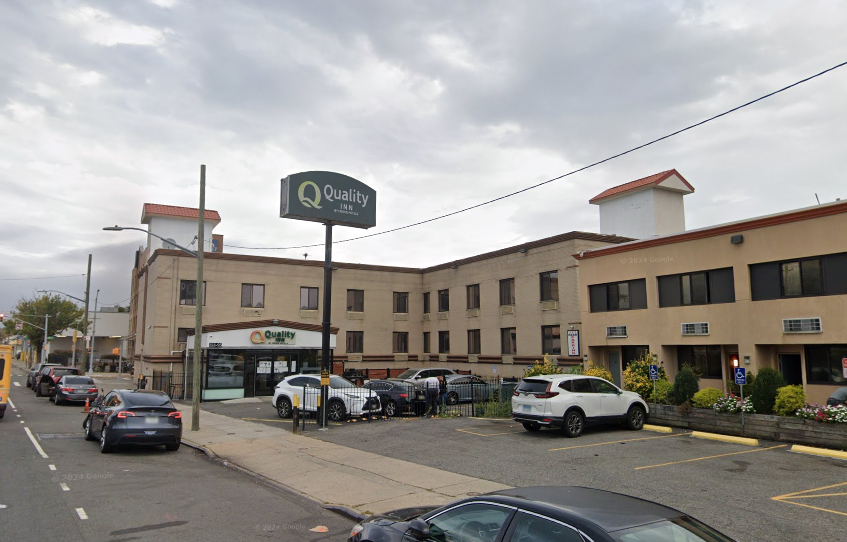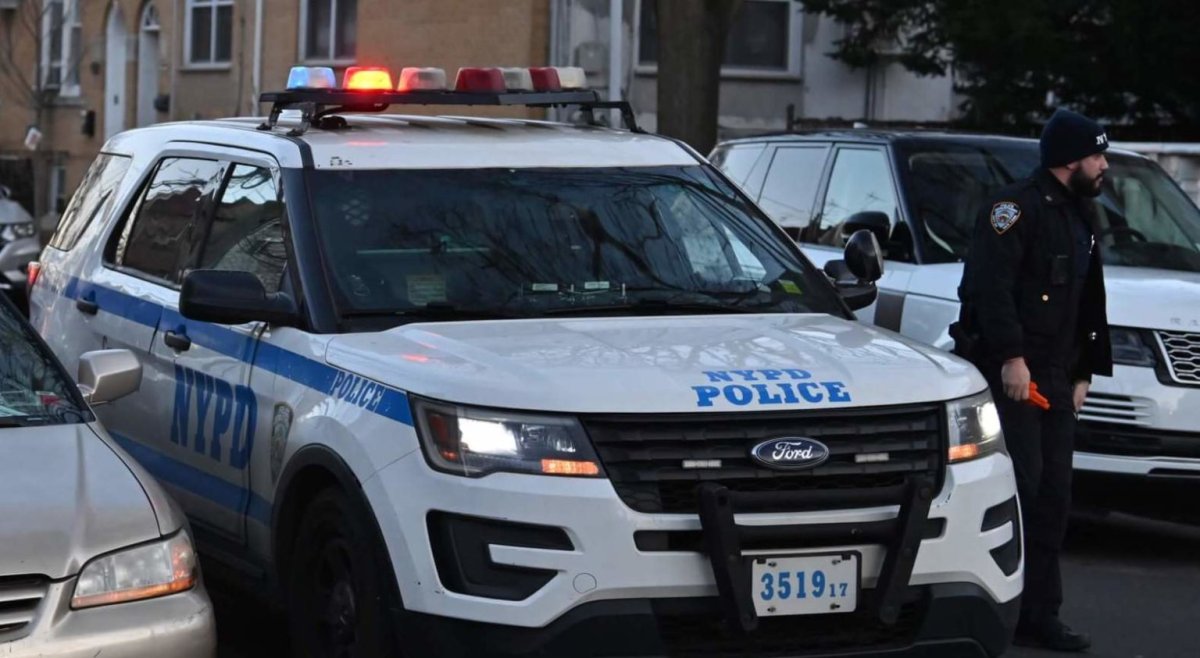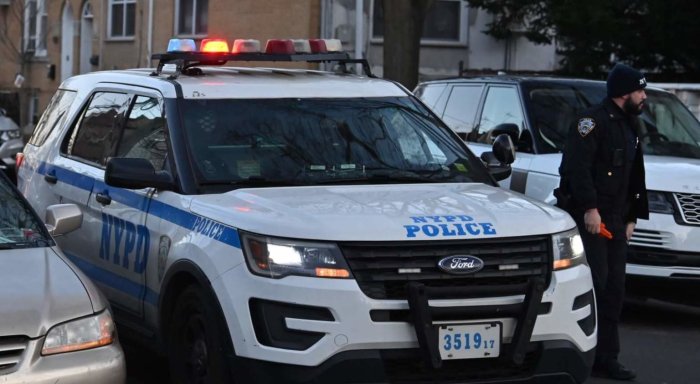By Lincoln Anderson
Supporters of the plan to post off-duty uniformed police officers outside bars for noise control are confident a bill in the City Council authorizing the practice will pass easily. The Council’s Public Safety Committee will hold a hearing and vote on the bill — introduced by Brooklyn Councilmember David Yassky — on April 29, and the full Council is expected to vote on it the following Wednesday, May 3.
The legislation has over 20 sponsors and it’s anticipated there will be enough Council support to override an expected veto by Mayor Bloomberg.
Two sponsoring councilmembers, Christine Quinn and Alan Gerson, represent parts of Downtown Manhattan.
“I am very excited about the fact that the Council is going to vote on the bill later this month,” said Quinn, whose district includes part of the Village and Chelsea. “I think it will be helpful, to make sure that the nightclubs and bars will have the tools to keep the peace. I think it’s been pretty helpful in Miami, and possibly Houston. I expect that the Council will pass the bill.”
“I think it’ll help with traffic, vehicular and pedestrian, issues, as well as emergency response,” said Gerson, who represents part of the Village, Lower East Side and Lower Manhattan. “I think it’ll improve safety of clubs, cut down on horn honking and congestion. But I made it clear, this should be part of a more comprehensive nightlife policy.”
Gerson said a clear chain of command must be established so off-duty officers report to the Police Department, not the bars employing them.
Council Speaker Gifford Miller in his “State of the City” address on Feb. 25, said he supports paid detail:
“New York should always be the city that never sleeps, but everyone deserves a little shuteye,” Miller said in his speech. “This Council is determined to address the problem of excessive noise. Councilmember Yassky’s bill will allow bar owners to pay uniformed police officers so they can stop rowdy behavior outside their establishments. That’s what they do at Yankee Stadium, at Madison Sq. Garden and in Houston and in Miami, and that’s what we’ll do in neighborhoods that need it when we pass the paid detail bill this year.”
Community Boards 4, 5 and most recently 3, have passed resolutions in support of paid detail for bars and clubs. Board 3, which includes the East Village and Lower East Side, voted 22 Yes to 13 No for paid detail; opponents argued that beat officers should be patrolling outside the bars, but advocates said the measure will mean more officers on the streets.
Councilmember Margarita Lopez, however, whose district includes Board 3, expressed reservations.
“Although I am not against it, I think you have to be very careful with that, because, in the past, corruption of officers began there,” she said. “You have to put in place safety measures to not allow that to happen. Some of these places have drug trafficking inside. So the police officer that is outside will be protecting it — or will he be making an arrest? That is the reason I think this legislation is tricky.”
Up until now, the Police Department has felt the same way. A police spokesperson said Police Commissioner Ray Kelly will make the final decision on whether to allow paid detail for bars.
“Even if it gets passed, it’s still up to the P.C. on whether he wants to do it,” the spokesperson said. “There are people pushing for it, but that doesn’t mean it’s going to happen. We’re waiting to see what happens with the City Council hearing, and the P.C. will be making his decision.”
A spokesperson for the mayor did not return calls for comment.
Said Quinn, “I’m confident that the Council and the police commissioner will work out the details.”
Quinn said corruption fears are unfounded, since there has been no corruption associated with paid detail with the stadiums or Madison Sq. Garden, and since the bars won’t pay the officers directly, but will pay the department’s Paid Detail Unit, which will then pay the officers.
The Police Department’s six-year-old Paid Detail Unit was created under former Mayor Giuliani. Currently places off-duty officers are allowed to be employed include the stadiums, department stores, malls, movie theaters and banks.
The Patrolmen’s Benevolent Association, the police officers’ union, supports paid detail, according to a spokesperson.
“We support the legislation,” said Joe Mancini. “It’s an opportunity for police officers to supplement their income.”
The main impetus for paid detail for bars has been the mayor’s new smoking ban, which has caused an increase in nighttime sidewalk smoking. Also, the fatal stabbing of bouncer Dana “Shazam” Blake, 32, by a disgruntled smoker at Guernica on Avenue B last April raised fears bar employees had a situation on their hands they couldn’t handle. Yassky introduced his bill shortly after Blake’s killing.
Lieut. Joe Grogan of Greenwich Village’s Sixth Precinct said that the smoking law has definitely increased nighttime noise.
“Everyone’s smoking in the street, chatting on the sidewalk and in the back,” he said. “I don’t know many drunks that whisper. Noise complaints have gone up and it seems to be in part because of people smoking outside.”
The New York Nightlife Association has strongly advocated since the Paid Detail Unit was created to allow off-duty officers to work for bars and clubs. David Rabin called the expected passage of Yassky’s bill over the mayor’s veto a “big thing.”
“It’s a win-win for everyone,” Rabin said. “I don’t know how the administration is going to be against it…. The public do not comprehend that bouncers do not have police power and can’t put their hands on people — except in self-defense or to lead someone out. A cop could say, ‘You’ve got to move along, or we’re going to arrest you.’… The three major community boards support it, the P.B.A. supports it. Ask any cop if they want this work. They want this work. Clearly this has worked, and it’s worked in a lot of other cities.”
Michael Haberman, chairperson of the board of the Greenwich Village-Chelsea Chamber of Commerce, said, “I don’t think we have a formal position. I think we think that not all restaurants and bar owners will want to do it, but we think some restaurant, bar and nightclub owners will want to try it to be good neighbors.”

































